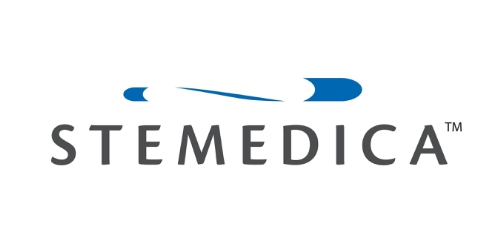FDA Approves Stemedica’s Phase 2a Alzheimer’s Therapy Study
Written by |

Stemedica Cell Technologies, Inc. is a specialty biopharmaceutical company which manufactures best-in-class allogeneic adult stem cells and stem cell factors. The company is a government licensed manufacturer of cGMP, clinical-grade stem cells currently used in US-based clinical trials for acute myocardial infarction, chronic heart failure, cutaneous photoaging and ischemic stroke. Stemedica's products are also used on a worldwide basis by research institutions and hospitals for pre-clinical and clinical (human) trials. Stemedica is currently developing additional clinical trials for other medical indications using adult, allogeneic stems cell under the auspices of the FDA and other international regulatory institutions. (PRNewsFoto/Stemedica)
The U.S. Food and Drug Administration (FDA) has approved the investigational new drug (IND) application submitted by Stemedica Cell Technologies, Inc. The approval means that the company is allowed to initiate a phase 2a clinical study to evaluate the use of an allogeneic stem-cell therapy for the treatment of patients with mild to moderate dementia related to Alzheimer’s disease.
Stemedica announced that it will initiate the study entitled “A Phase IIa Multicenter, Randomized, Single-blind, Placebo-controlled, Crossover Study to Assess the Safety, Tolerability, and Preliminary Efficacy of a Single Intravenous Dose of Allogeneic Human Mesenchymal Stem Cells in Subjects with Mild to Moderate Dementia Due to Alzheimer’s Disease,” following the FDA approval.
The research, which is expected to result in an effective treatment to address Alzheimer’s will take place at the University of California, San Diego (UCSD) under Principle Investigator Douglas Galasko, MD. The company also stated that it is planning to extend the study to further clinical sites and that it will be conducted with financial support and management assistance from Stemedica International, S.A.
“We are very excited to take this next step in developing a treatment for this devastating disease,” stated the president and chief medical officer at Stemedica, Nikolai Tankovich, MD, PhD, who is also the executive chairman for Stemedica International. “Our upcoming Phase IIa clinical trial will enable us to make progress towards determining if our stem cell treatment may be able to halt or slow down the progression of Alzheimer’s disease and other forms of dementia.”
The unique allogeneic “itMSCs” from Stemedica are derived from bone marrow and grown under hypoxic conditions to improve the resemblance to the natural environment in the human body. itMSCs hold higher levels of growth factors generally related to angiogenesis and healing, in comparison with other MSCs. Stemedica International holds the U.S. Patent application number 20140286910, which includes AD stem cell therapies like itMSCs, neural stem cells (NSCs) and stem cell factors.
“This study was approved based on the excellent safety profile of Stemedica’s cGMP-manufactured, hypoxically-grown stem cells and on solid pre-clinical data obtained by Stemedica International in cooperation with the École Polytechnique Fédérale de Lausanne of Switzerland and with a grant from the Swiss government,” said the chief regulatory and clinical development officer at Stemedica, Lev Verkh, PhD.
“We are very proud of Stemedica’s clinical program under U.S. INDs for several indications including ischemic stroke, acute myocardial infarction, chronic heart failure, cutaneous photoaging and Alzheimer’s disease. At the study’s conclusion we will understand if our approach is efficacious versus placebo in subjects with Alzheimer’s-related dementia, as evidenced by neurologic, functional, and psychiatric endpoints,” added Verkh.
The company had already released promising results from a three-year, intensive, pre-clinical research, conducted at the Laboratoire d’Optique Biomedicale, led by Professor Theo Lasser at École Polytechnique Fédérale de Lausanne (EPFL) in Switzerland, and supported by a grant from the Swiss Commission for Technology and Innovation (CTI). The study was designed to assess the impact of an intravenous delivery of human mesenchymal stem cells on amyloid pathology, using a APPPS1 transgenic mouse model of Alzheimer’s disease.
The first results of the experiment were presented at the Alzheimer’s Association International Conference in Copenhagen, Denmark, on July 14, 2014, and demonstrated a more than 30-percent decrease in amyloid beta (Abeta) plaques in the brain of transgenic animals treated with Stemedica itMSCs compared to the control group, which was administrated with lactated Ringer’s solution (LRS).





